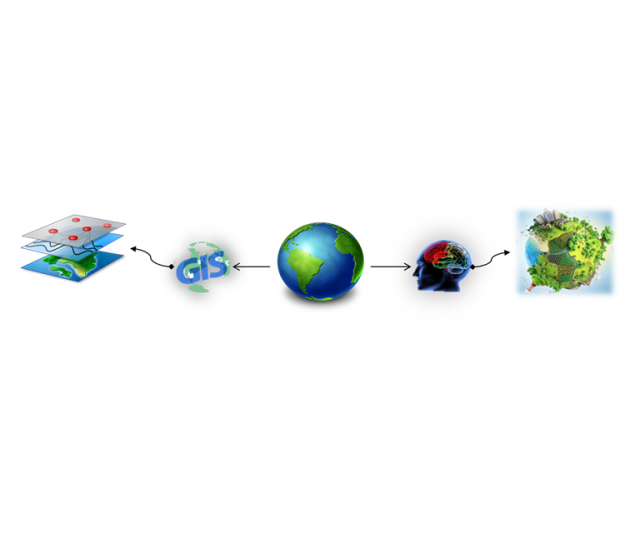ThinkSpatial: Emmanuel Papadakis

Bridging Space and Place in Geographic Information Systems
Emmanuel Papadakis
University of California Santa Barbara
Abstract: People refer, describe and interact with places; geographic information systems (GIS), however, are designed to visualize, process and analyze spaces. Both place and space are used to describe the geographic world, but each provides a different perspective. Place is an informal view framed by symbols, concepts and experience, whereas space is confined to the rigid digital world that adheres to mathematical formulas, data models and processes. Since digital systems have become a vital part of our lives, it is crucial to enable them to visualize, analyze and process the world as humans do. In this presentation, I will tackle a long-lasting question on whether spatial representation standards infused with semantics can create an adequate reflection of the geographical world as it is projected in the human mind. Using the concept of functions, I show how important aspects of place can be formalized and be integrated into GIS. Through examples on place-based search, I depict how a system can combine the processing and visualizing capabilities of machines with the sophisticated concept of place, contributing to the overall idea of a place-based GIS. Finally, I give some insights on further research that aims to incorporate emotions and similar concepts in the aforementioned formalization. Also, I propose the idea of an Algebra of Patterns, which focuses on innovative ways of conducting place synthesis, search, and discovery.
Bio: Emmanuel Papadakis is a postdoctoral researcher at the Center for Spatial Studies in the Department of Geography at the University of California, Santa Barbara. He received his Ph.D. in Geoinformatics as a member of the Doctoral College GIScience within the Inter-faculty Department of Geoinformatics at the University of Salzburg in October 2019. He holds an M.Sc. and a B.Sc. degree in Computer Science from the University of Crete, Greece. His research focuses on modeling, knowledge representation and reasoning of vague concepts such as fuzzy spatiotemporal entities, spatial functions, places, environmental stress and others aiming to introduce formalizations that enable their digitization and effective integration in digital systems.
The objective of the ThinkSpatial Forum is to exchange ideas about spatial perspectives in research and teaching, broaden communication and cooperation across disciplines among faculty and graduate students, and encourage the sharing of tools and concepts.